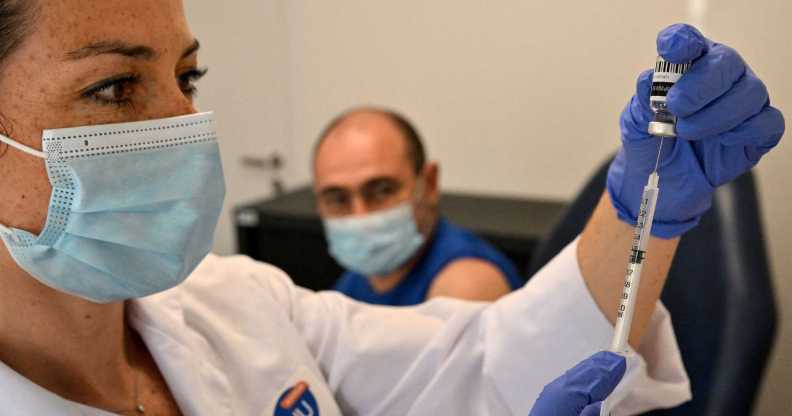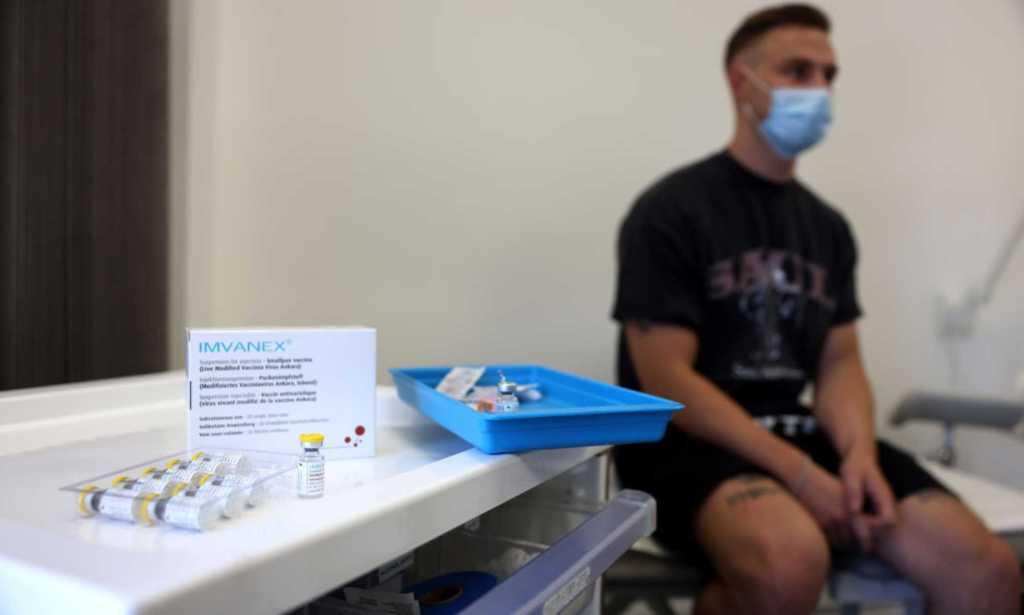Mpox: Health officials issue fresh advice to men who have sex with men ahead of summer

People are being urged to get their mpox vaccinations before the UK vaccine rollout ends this summer. (PASCAL GUYOT/AFP via Getty Images)
While cases of mpox in the United Kingdom continue to drop, eligible people are still being encouraged to get jabbed before the vaccine rollout winds down.
On Thursday (6 April), the UK Health Security Agency shared an update on the number of mpox – previously known as monkeypox – cases in the UK.
Latest data shows that from 1 January to 31 March 2023, there were just nine cases of mpox reported in the country, compared to a high of 350 per week in July 2022.
Of these, eight were in England – four of which were believed to have been acquired within the UK and four reported in returning travellers – while one was in Scotland and concerned a returning traveller.
The downward trend in cases comes as the UK is set to wind down its vaccine campaign against the virus, despite the World Health Organisation (WHO) still considering mpox a public health emergency.
Dr Katy Sinka, head of sexually transmitted infections at UKHSA, said: “This latest data shows we are continuing to see a very low number of mpox cases across all four nations of the UK.
“Through our strategy, and with continued support from our partners and the public, we hope to maintain this trend and move towards our ultimate goal of eliminating transmission of the disease in the UK.
“However, it’s vital that all those eligible for the vaccine come forward ahead of the summer months to ensure they have maximum protection.”

The UK is not the first country to halt its vaccination programme, as the United States stopped classifying mpox as a public health emergency at the end of January and Ireland ended its vaccination programme at the end of February.
In the UK, eligible people – particularly gay, bisexual and men who have sex with men – have until 16 June to get their first dose and 31 July for the second dose.
Dr Gayatri Amirthalingam, deputy director, public health programmes at UKHSA, said vaccination is “key” to reducing severe symptoms of mpox and preventing transmission.
Amirthalingam noted that while uptake for first doses has been “strong”, only around “a third of those who have received their first dose have had their second dose so far”.
“I would urge everyone that’s eligible to come forward for both doses so they have maximum long lasting protection,” he said.
The mpox outbreak began in May 2022 and since then, there has been around 90,000 cases with 112 deaths recorded across the globe. You can find a mpox vaccination site on the NHS website.

